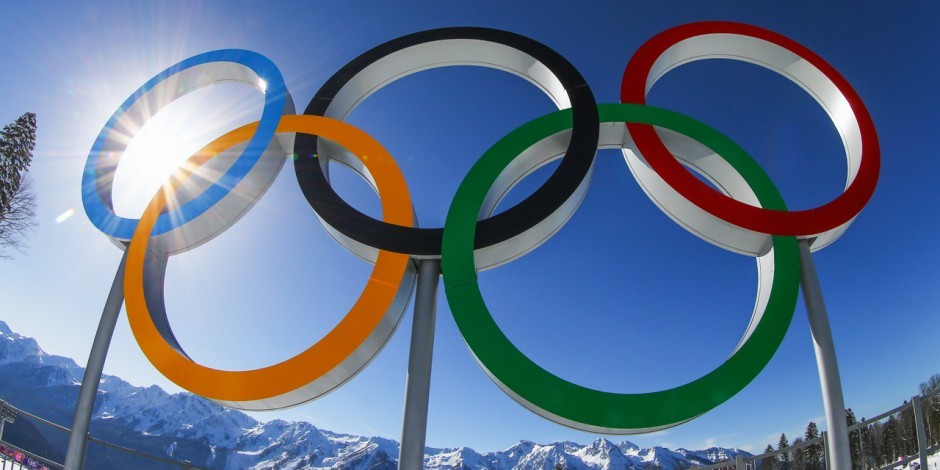Translating and Interpreting at the Olympics Games
November 08 , 2021Translating and Interpreting at the Olympics Games
by Target Language Translation Services
- November 08 2021

The Olympics is one of the most renowned sporting events in history. Although a fierce competition between athletes at their peak, the games offer countries a forum to set aside their differences and come together through the power of sport. This requires superior global translation services. In addition, very written document associated with the games must, according to Olympic guidelines, exist in the three official Olympic languages, French, English and the language of the host country. Therefore, the Olympic translation team of specialized linguists must work hard under a strict schedule to translate documents and signage related to the Games into all of the official languages; a process which starts about one month before the Games begin. Despite its tediousness, this process offers the essential function of allowing the Games to run smoothly by making sure that athletes receive the correct information in their native language.
Why are translating and interpreting important?
Given the fact that the Olympic Games feature athletes from over 200 countries, interpreters are vital to bridging cultural and linguistic barriers between participants. Olympic interpreters work assisting the media in interviewing athletes when- and wherever they can, at the post-medal ceremony press conferences and at meetings of the International Olympic Committee and its commissions. Between the various Olympic venues and the countries’ separate locker rooms, the most challenging interpreting work may be in the so-called “mixed zone”, where participants from different countries travel to their respective venues. Working in this zone can prove difficult for even the most skilled linguist, as interpreters in this zone often help to prevent misunderstandings or confusion that can lead to scuffles between athletes.
Critical Shortages
Depending on the infrastructure and budgeting/organizational priorities set by the local committee, interpreting at the post-medal ceremony conferences will be simultaneous, consecutive, or even relayed. Where no budget or obligation for professional interpreters exists, volunteers pick up slack. So survey the mainstream media for information on how translation and interpretation services for the Olympic Games are handled and you’ll find yourself tripping again and again over such tired phrases as “lost in translation” and “Babel”. Frustration with the pace of consecutive and relay interpreting at media events is another common theme.
However, peak with professional translators and interpreters who have actually been in the thick of this prestigious, global and athletic megaevent, a very different picture emerges.
Therefore, interpreters must prepare by familiarizing themselves with the rules and regulations of the various Olympic sports, the names of previous medal winners and current favorites, athletes’ biographies, and more.
About Translation at the 2020 Olympic Games
Official Languages: English, French and Japanese
Japanese is the official language of Japan. It is spoken by 128 million people around the world, with most of those people living in Japan. Japanese has some unique characteristics, including a somewhat complicated grammatical system that uses varying degrees of politeness and formality to express respect.
It also has a famously complex writing system. Modern Japanese is written using a combination of three different types of characters:
“kanji,” characters borrowed from Chinese.
“hiragana”, phonetic characters that represent sounds and syllables and which are used for Japanese words not covered by kanji, and
“katakana”: characters that use components or fragments of kanji to denote specific syllables. Katakana is used to write foreign language words in Japanese, for loanwords, for technical and scientific terms, and for naming plants, animals and minerals.
Translation Technology
Given Japan’s reputation as a powerhouse of innovation and technology, there were high expectations for translation technology at the 2020 games. For instance, Panasonic was debuting the Fukidashi, a portable translation device shaped like a comic book speech bubble. There was supposed to be a “robot village” filled with robots to assist with translation and more. And of course, several new real-time translation apps and handheld devices were expected.
But due to COVID, there’s simply not as much attention on translation tech this year without the expected influx of foreign visitors,.
Japanese Olympic Words
As you watch the games, here are some Japanese terms you might hear:
東京五輪 (Tōkyō Gorin): Tokyo Olympics
開会式 (kaikaishiki): opening ceremony
得点 (tokuten): Score
金メダル (kin medaru): Gold medal
銀メダル (gin medaru): Silver medal
銅メダル (dou medaru): Bronze medal
選手 (senshu): athletes
スケートボード (sukētobōdo): Skateboarding
体操( taisō): Gymnastics
空手 (karate): Karate
水泳 (suiei): Swimming
野球 (yakyuu): Baseball
テニス (tenisu): Tennis
スポーツクライミング (supōtsukuraimingu): Sport climbing
ソフトボール (sofutobo-ru): Softball
This article is reprinted from NCTA, Language Connections and K International.
If there is a copyright, please inform us in time, we will delete it right the first time.